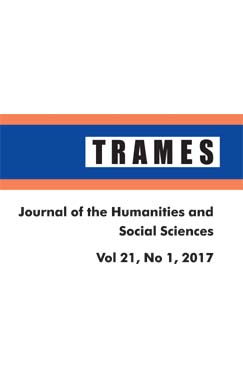A CRITICAL REACTION TO LAINE RANDJÄRV’S HISTORICITY OF EPISTOLARITY FROM AN AFRICAN PERSPECTIVE
A CRITICAL REACTION TO LAINE RANDJÄRV’S HISTORICITY OF EPISTOLARITY FROM AN AFRICAN PERSPECTIVE
Author(s): Cyril-Mary P. Olatunji, Mojalefa L. J. KoenaneSubject(s): Cultural history, Epistemology, Philosophy of History
Published by: Teaduste Akadeemia Kirjastus
Keywords: epistemology of history, epistolary; border-crossing; self-portraiting; causal-determinism;
Summary/Abstract: This article is partly an original research in that it had initially intended to describe what intellectuality means and involves. However, it is mainly a reaction to Laine Randjärv’s article titled ‘Across the Borders: Unfolding the Personality of Creative Intellectuals Through their Correspondence – the Epistolary Heritage of Tuudur Vettik’ in which Randjärv describes intellectuality as border crossing in a simplistic manner that seems to challenge logical experiences and supports the ‘official doctrine’ of the Cartesian dichotomist dualism. This paper argues to the conclusion and in support of the position of Randjärv’s article that intellectuality is border crossing but goes further to question whether border crossing is ever logically possible in such a simplistic form of mental transposition without the self-portrait making implied by the cosmic harmony of Ubuntu. That is, though intellectuality implies overcoming geographical, theoretical and cultural boundaries, restrictions and prejudices. The process however is never simplistic because, following the principles of Ubuntu, the thinker is how he thinks. Therefore, the theoretical position of a scholar is a reflection of the person of the scholar who theorises. Consequently, this paper argues for a qualified acceptance of Laine Randjärv’s position.
Journal: TRAMES
- Issue Year: XXI/2017
- Issue No: 1
- Page Range: 61-78
- Page Count: 18
- Language: English

